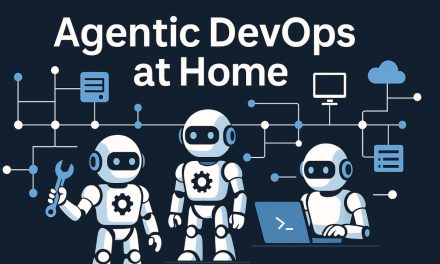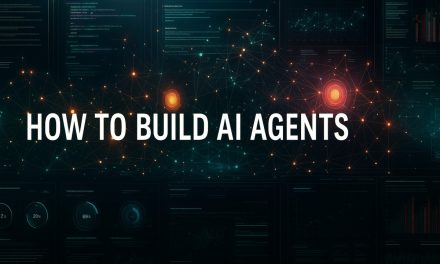Artificial Intelligence has transformed rapidly, moving from simple chatbots to powerful “agents” capable of complex decision-making, automation, and even creative work. By 2025, these AI agents are poised to revolutionize not just how businesses operate, but how entire workforces function—introducing both remarkable efficiencies and significant concerns about job displacement.
Why AI Agents Matter
- Advanced Capabilities
Early chatbots handled basic FAQs. Today’s AI agents can manage tasks like coding, document analysis, and large-scale data interpretation—freeing humans to focus on higher-level strategy, relationship-building, and innovation. - Operational Efficiency
AI agents work continuously without breaks or downtime. This nonstop availability speeds up everyday processes, reduces errors, and can drastically cut costs. For organizations and individuals, these efficiencies create a competitive edge but may also lead to re-evaluating certain roles. - Scalability
Virtual agents can be deployed in large numbers to handle repetitive tasks. Rather than hire more staff, companies can “scale up” by training additional AI agents—often at a fraction of the overhead. This dynamic paves the way for smaller teams (or even solo entrepreneurs) to manage expansive operations, raising questions about the future of mid-level roles. - Data-Driven Insights
AI agents excel at analyzing massive datasets and pinpointing patterns or anomalies. Such data-driven guidance can boost strategic decisions in fields ranging from finance to supply chain management. But as reliance on AI insights grows, the workforce will need to shift toward tasks requiring judgment, creativity, and empathetic interaction.
Balancing Optimism and Concern
- Positive Outlook:
Routine tasks may become largely automated, allowing humans to dedicate time to creative pursuits, strategic thinking, or interpersonal roles that computers aren’t as adept at handling. This could usher in a new era of innovation and productivity. - Potential Downsides:
Greater automation also means certain jobs risk being phased out. Employees in roles heavily based on repetitive tasks could face displacement if they aren’t retrained or upskilled to complement AI-driven processes. Ethical considerations—such as data privacy, transparency, and algorithmic bias—also loom large as AI agents become ubiquitous.
Building an “AI Army” for Broad Applications
Even though AI agents can be customized for specific tasks, you can deploy them across a wide range of functions to optimize your entire operation. The following table outlines some of the most common AI agent roles, their responsibilities, and suggested language models (both open-source and proprietary).
| Agent/Role | Description of Role | LLM Suggestions |
|---|---|---|
| Customer Support Agent | • Respond to FAQs and tier-1 inquiries• Provide troubleshooting steps• Escalate complex issues to human reps | Open-source: Llama 2 (7B/13B), Mistral 7B, Falcon 7B/40B, Vicuna/ChatGLMClosed-source: GPT-3.5/GPT-4 (OpenAI), Anthropic Claude 2 |
| Sales & Outreach Agent | • Cold emailing and lead generation• Scheduling meetings and demos• Automated follow-ups | Open-source: Llama 2 (instruction-tuned), Falcon 40B (fine-tuned)Closed-source: GPT-3.5/GPT-4 (Azure OpenAI), Claude 2 |
| Coding & DevOps Agent | • Code generation and debugging• Infrastructure scripting (Terraform, Docker, etc.)• Automated testing and CI/CD | Open-source: Code Llama, StarCoder, WizardCoderClosed-source: GPT-4 (Code Interpreter), Bard (limited code support) |
| Legal & Contract Review Agent | • Draft/review standard contracts (NDAs, partnership agreements)• Summarize key clauses• Check for compliance or risks | Open-source: Llama 2 (70B fine-tuned), Falcon 40B (extended with domain data)Closed-source: GPT-4 (OpenAI) + legal plug-ins, Anthropic Claude 2 |
| Finance & Accounting Agent | • Basic bookkeeping (invoices, statements)• Categorize transactions• Budget analysis and forecasting | Open-source: Llama 2 (fine-tuned for finance), Mistral 7B (tabular data)Closed-source: GPT-3.5/GPT-4 (accounting plug-ins) |
| Data Analysis & Insights Agent | • Analyze large data sets for trends• Generate dashboards or summaries• Provide data-driven recommendations | Open-source: Falcon 40B + RAG, Llama 2 (integrated with Python-based analytics)Closed-source: GPT-4 (OpenAI) with advanced analytics |
| HR & Recruiting Agent | • Screen resumes• Schedule interviews• Draft or revise job descriptions | Open-source: Llama 2 / Vicuna (short text classification), Mistral 7B (Q&A tasks)Closed-source: GPT-3.5/GPT-4 + ATS plug-ins |
| Marketing & Copywriting Agent | • Generate social posts, newsletters, blog articles• Brainstorm campaigns• Create personalized ads | Open-source: Llama 2 (13B instruction-tuned), Falcon 7B (creative text)Closed-source: GPT-3.5/GPT-4, Anthropic Claude 2 |
| Graphic Design & Multimedia Agent | • Draft design concepts (logos, banners)• Image editing prompts (Stable Diffusion pipelines)• Video script generation | Open-source: Stable Diffusion / SDXL (image generation), Llama 2 (concept ideation)Closed-source: DALL·E 2 (OpenAI), Midjourney (image gen) |
| Compliance & Audit Agent | • Check policies against regulations• Scan documents/logs for anomalies• Generate audit reports | Open-source: Llama 2 or Falcon + RAG, Mistral 7B (compliance fine-tuning)Closed-source: GPT-4 + compliance plug-ins, Anthropic Claude 2 |
Self-Hosting, Fine-Tuning, and RAG
- Self-Hosting Advantages
- Data Privacy: Keep proprietary information in-house.
- Customization: Tailor models to your industry or unique needs.
- Cost Control: Potential long-term savings over pay-per-API approaches.
- Retrieval-Augmented Generation (RAG)
- Real-Time Document Access: Vector databases (e.g., Qdrant, Weaviate, Chroma) let agents “look up” internal content and reduce hallucinations.
- Specialized Knowledge: Perfect for sectors where up-to-date, domain-specific insights are critical (e.g., legal, finance, healthcare).
- Fine-Tuning or LoRA
- Domain-Specific Expertise: Lightweight fine-tuning can infuse industry-specific knowledge into base models without retraining everything.
- Ongoing Improvements: As agents learn from real interactions, you can periodically refine parameters for better accuracy.
Ethical and Workforce Implications
- Job Displacement
AI agents can automate roles that rely heavily on repetitive tasks, which could lead to layoffs or significant role changes. Employers and policymakers must grapple with retraining or redeploying affected workers. - Bias and Fairness
Biased datasets can lead to AI agents making skewed decisions. Regular audits and transparent data management are critical for maintaining fairness. - Transparency and Accountability
With AI systems involved in crucial business decisions, there needs to be clarity on how they arrive at conclusions. A robust governance framework helps maintain public trust and legal compliance. - Opportunity for Evolution
As automation reduces mundane tasks, people can shift toward roles emphasizing creativity, critical thinking, interpersonal communication, and ethical oversight—areas where human capabilities remain invaluable.
Future Trends to Watch
- AI-Powered Creative Work
Expect growth in creative fields like art, music, writing, and video production assisted by AI. This could lead to novel collaborations but may also spark debates around originality and intellectual property. - Human-AI Collaboration
Many experts predict a collaborative model where AI handles bulk workloads and humans refine, guide, and bring emotional intelligence to the table. - Increasing Autonomy
Emerging systems aim for near-complete autonomy, reducing human oversight. This approach can accelerate results but demands stronger safeguards against unintended outcomes.
Practical Steps for Businesses and Individuals
- Start Small
Rather than overhauling entire workflows overnight, pick a single function (like basic customer inquiries) to automate. Scale gradually based on performance insights. - Invest in Data Quality
The best AI agent still falters if fed incomplete or inaccurate data. Maintain rigorous data governance for higher-quality outputs. - Collaborate with Experts
AI specialists and data scientists can guide infrastructure decisions, evaluate ethical risks, and ensure the technology aligns with your strategic goals. - Continual Monitoring and Iteration
Once agents are deployed, consistently measure outcomes and gather user feedback. Fine-tune models as new data or market conditions emerge.
Moving Forward: Embrace Change, Stay Vigilant
AI agents are reshaping the modern workforce with unprecedented speed. They offer huge potential gains in productivity, cost savings, and innovation but also raise legitimate concerns about privacy, fairness, and job security. Balancing these positives and negatives will define how well organizations—and society at large—navigate the AI revolution.
- Stay Adaptive: Technologies and regulations evolve quickly; remain prepared to adjust strategies.
- Promote Responsible Deployment: Uphold ethical standards, data governance, and fair labor practices.
- Focus on Human Strengths: Emphasize creativity, empathy, relationship-building, and complex decision-making—areas where humans still excel over machines.
In this transformative era, a thoughtful approach can enable you and your organization to thrive alongside AI agents. By blending continuous learning, ethical oversight, and strategic deployment, you can harness the power of automation without losing sight of humanity’s unique contributions to work and society.






Recent Comments